Background and recording
Following their tour for the Starfish album in 1988, the band members went home for a four-month break before reconvening to begin work on the next album. [2] Arista demanded demos of all the tracks before the official recording process could begin. These demos were recorded in Sydney at Fat Boy Studios by a young engineer by the name of Cameron Howlett. The band was tired of the material by the time the recording sessions commenced in late 1989. Further difficulties arose when the band wanted ex-Led Zeppelin bassist John Paul Jones to produce, but the record label wanted to team the band again with L.A. session musician Waddy Wachtel and engineer Greg Ladanyi, not wanting to change what had been a winning formula. Arista feared a Jones/Church collaboration might turn out too arty and non-commercial and vetoed the venerable musician in favour of the safer (and commercially tested) Wachtel, although Ladanyi was left out. Band members repeatedly noted how much they had disliked recording Starfish. That album's song "North, South, East And West" had been an indictment of Los Angeles' shallower aspects.
The recording sessions for the album were particularly fraught and in-band tensions led to drummer Richard Ploog being ostracised. While some of the bare, open sound that characterised Starfish punctuates the recording, the use of programmed drums instead of Ploog's live performances on all but four tracks resulted in the album being criticised as somewhat stiff and cold. According to biographer Robert Dean Lurie, the demo recordings for Gold Afternoon Fix were more successful than the finished album, despite their roughness. [3] Ploog left the group for good following the recording and former Patti Smith Group drummer Jay Dee Daugherty was brought in for the tour.
Despite the album's title, Steve Kilbey was not yet using heroin at this point. He only started smoking (not fixing) the drug after the subsequent tour, having been introduced to it by Grant McLennan of the Go-Betweens. The title actually derives from a stock market term relating to the daily price which is set for gold. [4]
The album is unique among the Church's releases in the absence of any 12-string electric guitar. The missing trademark sound was due to guitarist Marty Willson-Piper's 12-string Rickenbacker having been stolen during the previous tour.
I cringe every time I hear ‘Grind’. The irony of it all was that we were in session musician heaven in L.A. We recorded most of Starfish at The Complex Studios and the best drummers in the world were brushing past you every day – Russ Kunkel, Jeff Porcaro, Don Henley – and although we were at a different famous studio (Ocean Way), there would have been no problem hiring someone for a week to get the backing tracks down. But Waddy decided no, we should program all the drums on the songs that Richard hadn’t delivered, sitting in his producer chair banging out patterns on the little pads with his fingers, everything in perfect time but with awful clumsy drum rolls that sounded sonically flat. How did we go along with this approach with all our knowledge and experience? How did this come about when we were always so uncompromising when it came to our music? What the hell happened?
Marty Willson-Piper [5]
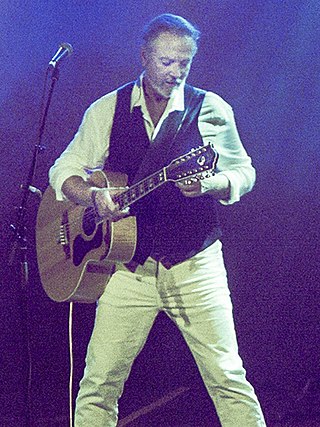
Steven John Kilbey is an English-Australian singer-songwriter best known as the lead singer and bass guitarist for the rock band The Church. He is also a music producer, poet, and painter. As of 2020, Kilbey has released 14 solo albums and has collaborated on recordings with musical artists such as Martin Kennedy, Stephen Cummings and Ricky Maymi as a vocalist, musician, writer and/or producer. Ian McFarlane writes that "Kilbey's solo recordings [are] challenging and evocative. They ran the gamut of sounds and emotions from electronic and avant-garde to acoustic and symphonic, joyous and dreamy to saturnine and sardonic".

The Church are an Australian rock band formed in Sydney in 1980. Initially associated with new wave, neo-psychedelia, and indie rock, their music later came to feature slower tempos and surreal soundscapes reminiscent of alternative rock, dream pop, and post-rock. Glenn A. Baker has written that "From the release of the 'She Never Said' single in November 1980, this unique Sydney-originated entity has purveyed a distinctive, ethereal, psychedelic-tinged sound which has alternatively found favour and disfavour in Australia." The Los Angeles Times has described the band's music as "dense, shimmering, exquisite guitar pop".

Martin Howard Willson-Piper is an English guitarist and singer-songwriter best known as a former long-time member of the Australian psychedelic rock band The Church. He joined in 1980 after seeing an early gig where they were performing as a three-piece. He was an integral member of the band for 33 years. He was also the guitarist for the English alternative rock band All About Eve from 1991 to 1993 and again from 1999 to 2002. He has also worked with Swedish progressive rock band Anekdoten.

Peter Koppes is an Australian guitarist, best known as a founding and almost-continuous member of the independent rock band The Church. He is a multi-instrumentalist, also playing mandolin, drums, piano, and harmonica. He has also released various solo albums and various recordings with his group The Well (1989-1995). Koppes lives on the Australian Central Coast in NSW but sometimes spends time on the Sunshine Coast in Queensland where he sometimes produces albums and has previously conducted seasonal 'song writing' and 'performance for demo recording' short courses at Nambour TAFE, as well as offering private tuition in guitar, bass, drums and song writing. His daughters are Tatiana 'O' Koppes and Neige Koppes who had their own band, Rain Party but now have independent solo careers.

"Under the Milky Way" is a single by Australian alternative rock band the Church, released on 15 February 1988, and appears on their fifth studio album Starfish. The song was written by bass guitarist and lead vocalist Steve Kilbey and his then-girlfriend Karin Jansson of Curious (Yellow). It peaked at No. 22 on the Australian Kent Music Report Singles Chart, No. 24 on the United States Billboard Hot 100 and No. 25 on the New Zealand Singles Chart; it also appeared in the Dutch Single Top 100. At the ARIA Music Awards of 1989, the song won 'Single of the Year'. It was issued simultaneously in both 7" vinyl and 12" vinyl formats by Arista Records (internationally) and Mushroom Records.
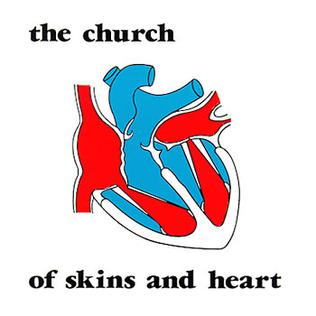
Of Skins and Heart is the debut album by the Australian psychedelic rock band The Church, released in April 1981 by EMI Parlophone. It peaked at No. 22 in the Australian Kent Music Report Albums Chart.

The Blurred Crusade is the second album by the Australian alternative rock band the Church, released in March 1982 by EMI Parlophone. Moving away from the new wave leanings of their debut, it was stylistically more complex and "a smoother, fuller release". "With its mystical lyrics the second album ... brought the group's own style more into focus". The album peaked at No. 10 on the Australian Kent Music Report Albums Chart and "Almost With You" reached No. 21 on the related Singles Chart.
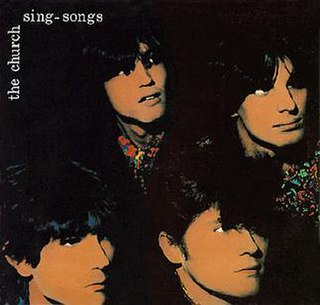
Sing-Songs is the second EP by the Australian psychedelic rock band The Church, released in December 1982.
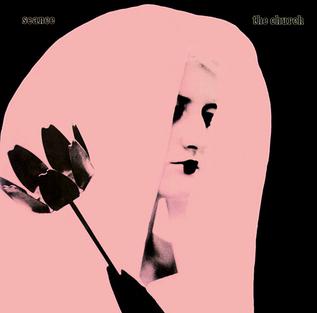
Seance is the third album by the Australian psychedelic rock band The Church, released in 1983. More atmospheric and brooding than its predecessor The Blurred Crusade's jangling psychedelia and upbeat rock, it shows a greater use of keyboards, with the guitars taking largely textural roles on many songs. While numerous tracks have become fan favorites over the years, the album saw considerably less success in Australia than previous releases and had limited exposure internationally. Apart from the psychedelic noise experiment "Travel By Thought", which prefigures the band's extended improvised tracks of the 1990s and beyond, all songs were written solely by Steve Kilbey.

Persia is the fourth extended play by the Australian psychedelic rock band the Church, which was released in August 1984. It was the follow-up to their earlier 1984 EP Remote Luxury, and continued in a similar stylistic vein.

Remote Luxury is the first compilation album by the Australian psychedelic rock band the Church, released in 1984. The band had recently signed to Warner Bros. in the United States and their new label decided to re-release the band's most recent Australian material, the Persia and Remote Luxury EPs, as an album with a new running order. They also released "Constant In Opal" as a single in the US. The version of "No Explanation" included here has a 20-second instrumental jam at the beginning.

Heyday is the fourth album by the Australian alternative rock band The Church, released in November 1985. The album marked the first occasion when group compositions dominated one of the band's releases. Steve Kilbey has said: "The demo situation was getting to us - me writing the songs on my eight-track and bringing them along to the band. It sounded too stiff. We'd reached this new energy level on stage which by far superseded anything we'd ever recorded, so we knew the only way to get sounding like that was for the whole band to write together."
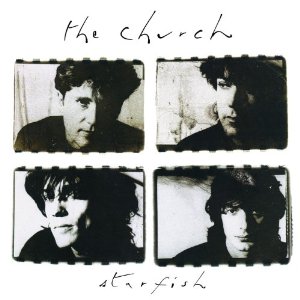
Starfish is the fifth album by the Australian rock band The Church, released in February 1988 by Mushroom Records in Australia and by Arista Records internationally. The band's international breakthrough album, Starfish went gold in America and has remained their most commercially successful release. The album sold 600,000 copies in the United States alone. The first single, "Under the Milky Way", charted on the US Billboard Hot 100, peaking at #24, and at #2 on the Mainstream Rock Tracks chart, leading to significant exposure of the then relatively underground Australian act. In Australia "Under the Milky Way" climbed to #22, and Starfish reached #11 on the album charts.

Priest=Aura is the eighth album by the Australian alternative rock band The Church, released in March 1992. It peaked at No. 25 on the ARIA Albums Chart.
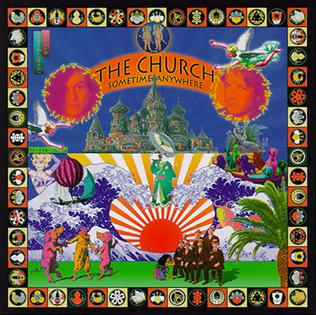
Sometime Anywhere is the ninth album by the Australian alternative rock band the Church, released in May 1994.
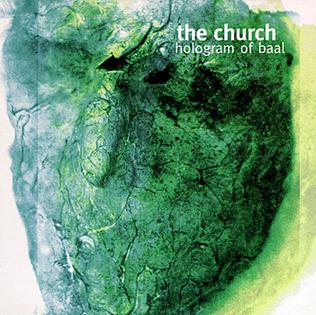
Hologram of Baal is the eleventh album by the Australian alternative rock band The Church, released in September 1998.
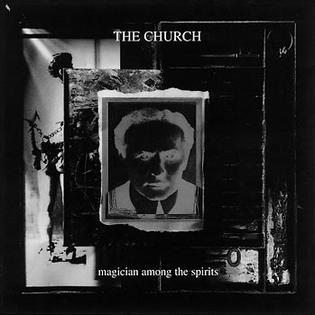
Magician Among the Spirits is the tenth album by the Australian alternative rock band The Church, released in August 1996. The album title was inspired by a book written by Harry Houdini and C. M. Eddy, Jr. (uncredited) in 1924, in which the famed magician discussed his investigations of spirit mediums. A photographic negative of Houdini is incorporated as the centrepiece of the album artwork. The album was reissued with a revised track listing as Magician Among the Spirits And Some in 1999.

Untitled #23 is the 23rd album by the Australian alternative rock band The Church, released in March 2009. It was their 23rd Australian album-length collection of original studio recordings, counting the four outtakes albums, the covers album A Box of Birds and the acoustic albums El Momento Descuidado & El Momento Siguiente.

"Metropolis" is a song by Australian alternative rock band the Church. It was released as the lead single from their sixth album, Gold Afternoon Fix (1990), and the songwriting credits were given to all four members of the band. The song topped the US Billboard Modern Rock Tracks chart and reached number 19 in Australia. A music video directed by David Hogan and produced by Chris O'Brien was made for the song.
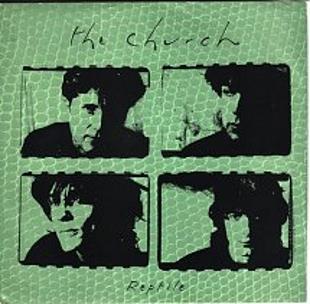
"Reptile" is a song by Australian alternative rock band The Church. It was released as a single from their 1988 album Starfish, and the songwriting credits are given to all four members of the band.




















